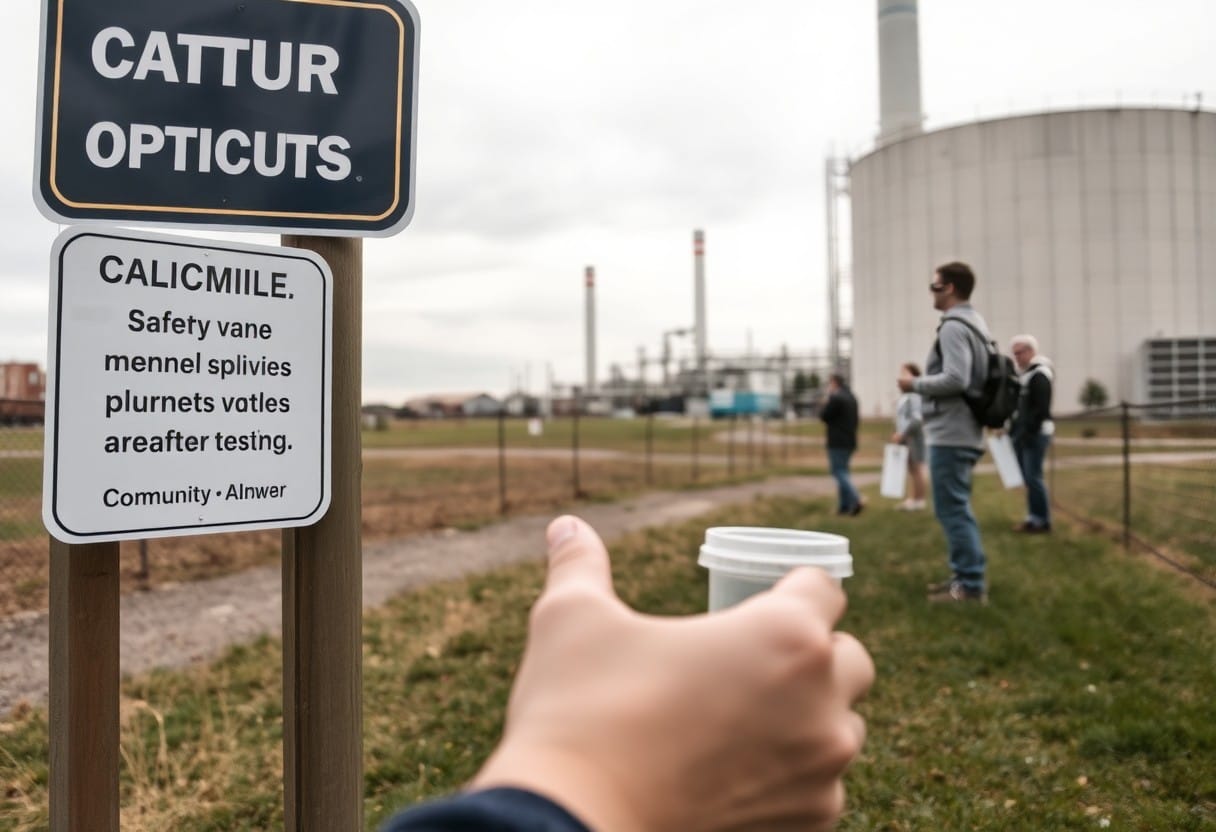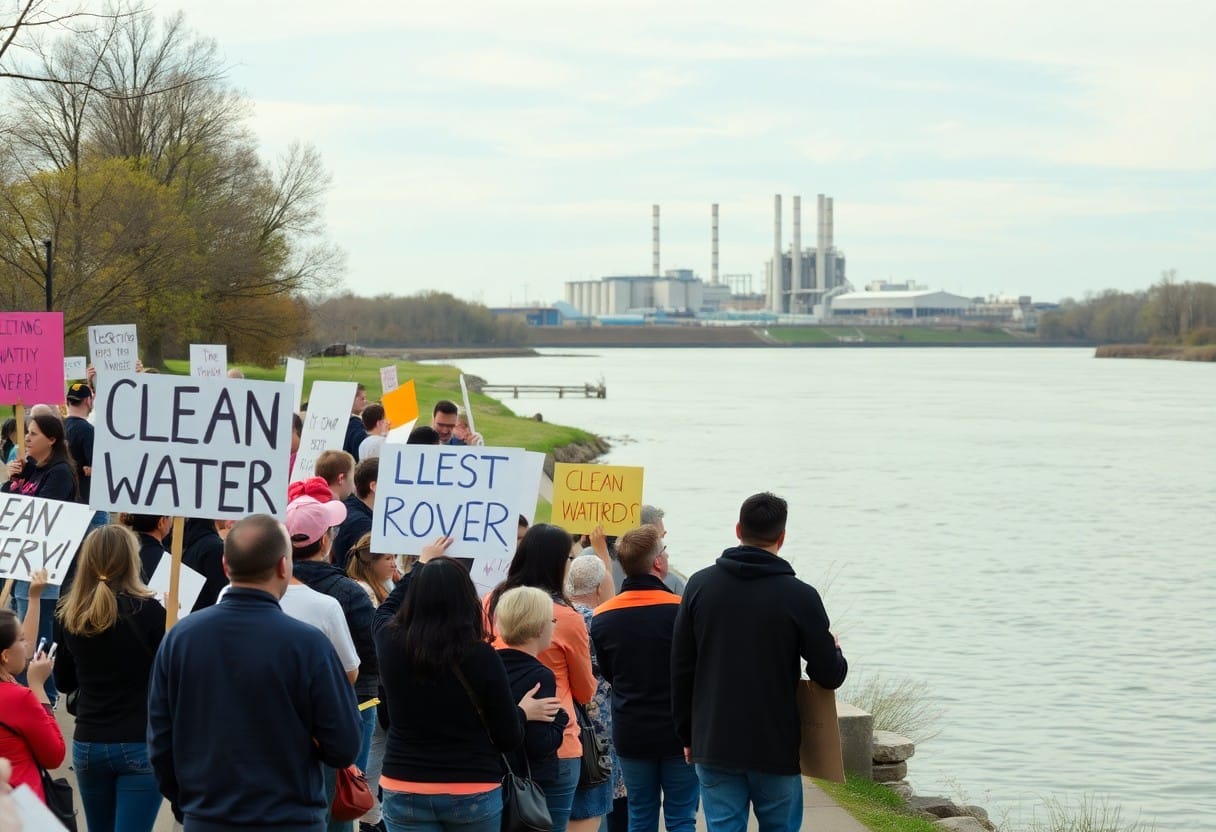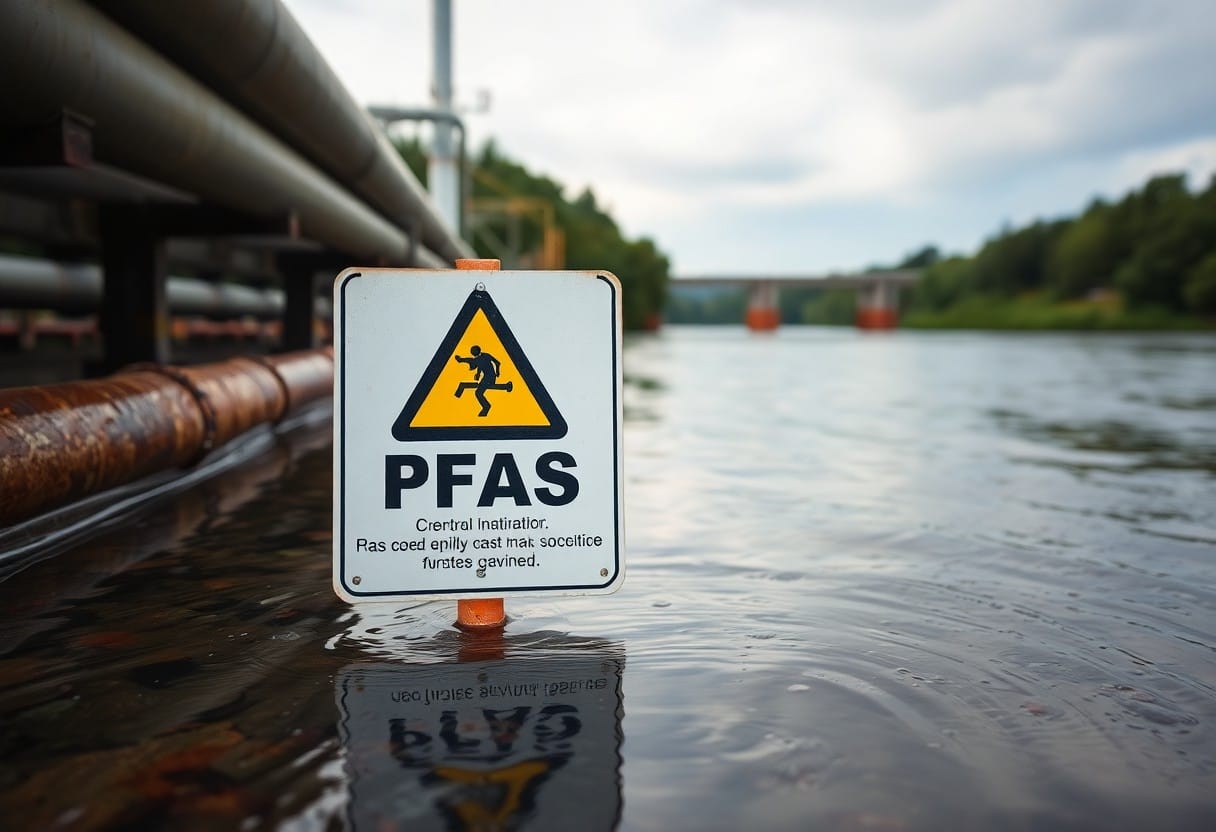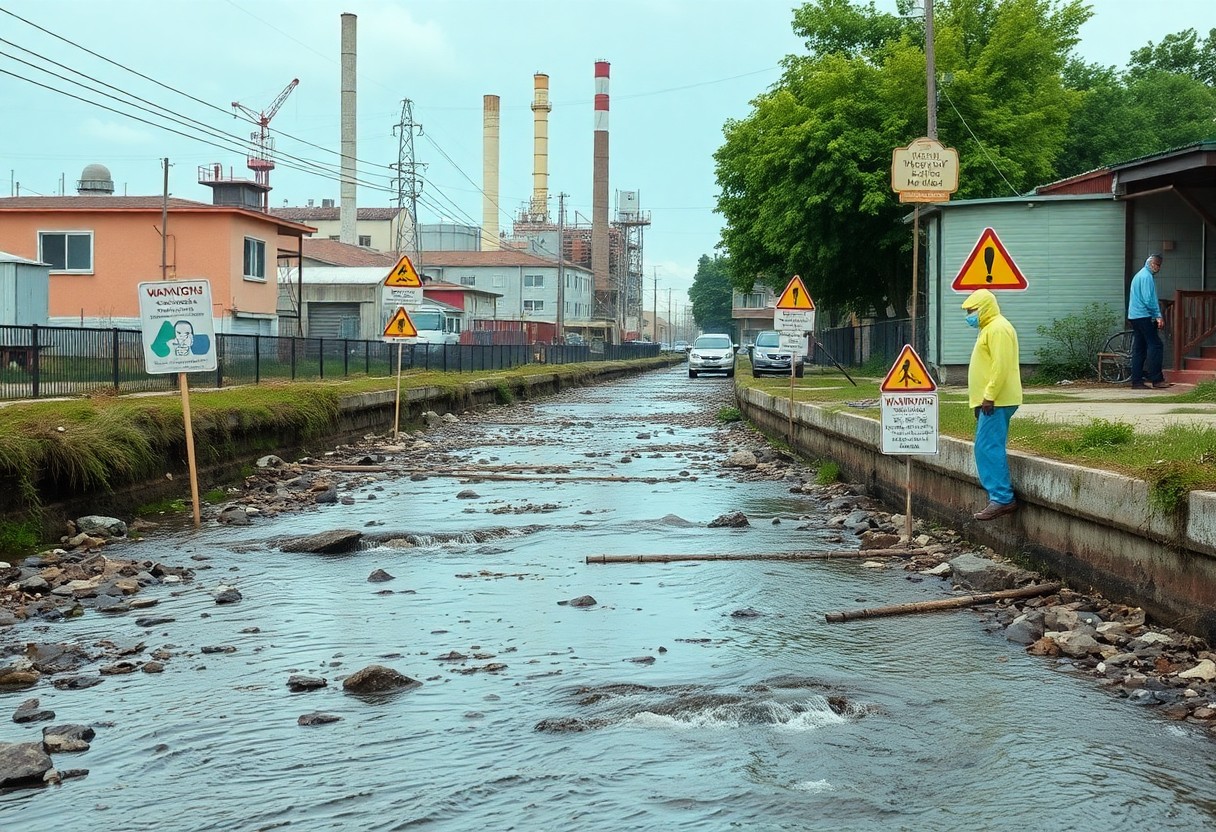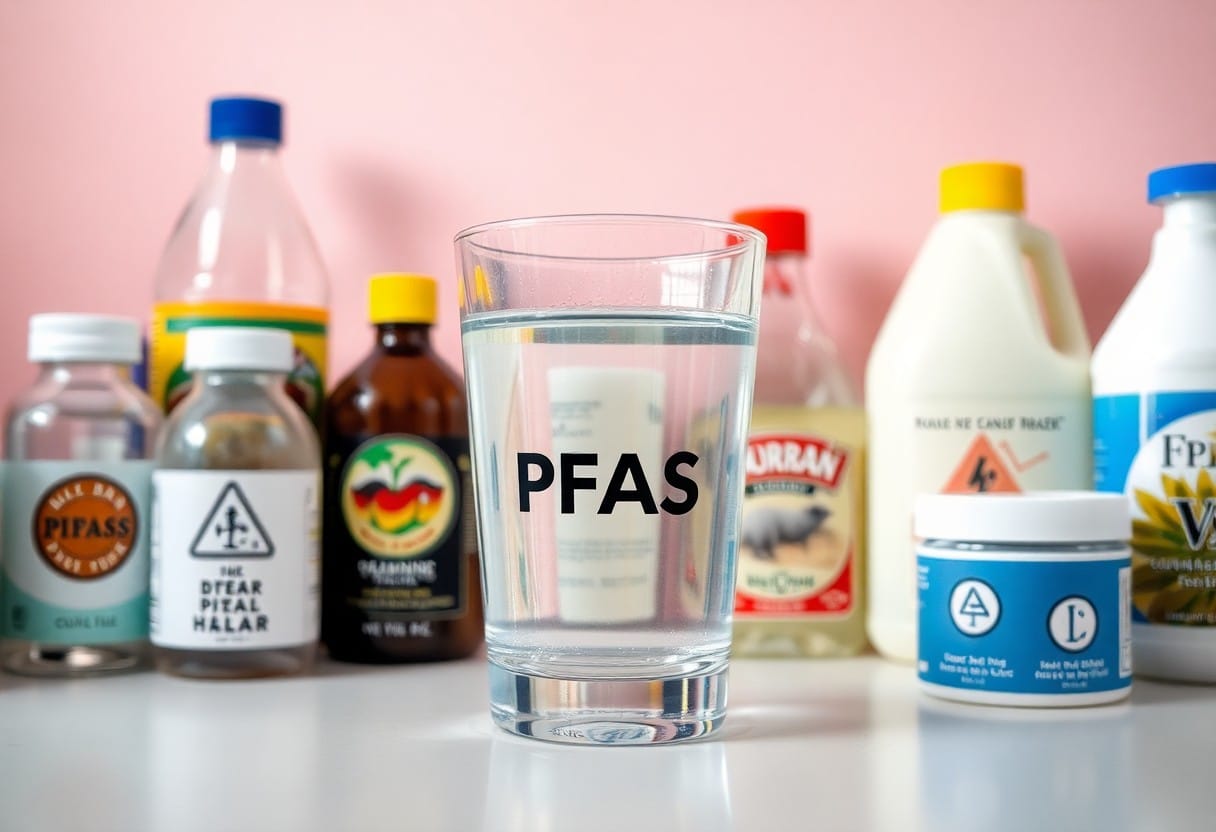There’s a growing concern in Fayetteville regarding Chemours’ PFAS contamination, impacting both your health and the environment. As a resident, it’s crucial to understand the risks associated with per- and polyfluoroalkyl substances (PFAS), which have been linked to severe health issues, including cancer and liver damage. This blog will give you a comprehensive overview of the situation, the steps being taken, and what you can do to protect yourself and your community from these harmful chemicals. Your awareness is vital for a healthy future.

Overview of PFAS
As a resident of Fayetteville, understanding the implications of PFAS is vital. Per- and polyfluoroalkyl substances (PFAS) are a group of man-made chemicals that have gained attention due to their persistence in the environment and the human body. Often referred to as “forever chemicals,” they do not break down easily, leading to potential health risks long after their use. These substances are commonly found in various consumer products and have been linked to adverse health effects, making it imperative for you to stay informed about their impact on your community.
What are PFAS?
After decades of use in industrial applications and consumer products, PFAS have emerged as a significant public health concern. These synthetic chemicals are used for their water- and grease-resistant properties, leading to their presence in items such as non-stick cookware, water-repellent clothing, and food packaging. PFAS can accumulate in your body and the environment, raising alarm about their long-term effects on health and safety.
Sources of PFAS Contamination
Any awareness of PFAS sources is important for understanding your exposure risk. PFAS can enter the environment through a variety of means, including industrial discharges, landfill runoff, and the use of firefighting foam. These substances have contaminated water supplies, soil, and even air, which means you could come into contact with them in your daily life.
But there are several ways PFAS contamination can occur that you might not be aware of. For instance, when industrial facilities manufacture products containing PFAS, they can accidentally release these chemicals into nearby waterways. Additionally, firefighting foams laden with PFAS have been used at airports and military bases, leading to widespread contamination. Even consumer products that you use, like stain-resistant carpets and treated fabrics, can leach PFAS into the environment, impacting your water supply and soil quality. Heightened vigilance about these sources is important for safeguarding your health and that of your community.
The Chemours Facility
Any resident of Fayetteville should be aware of the potential risks posed by the Chemours facility, particularly concerning the alarming levels of PFAS pollution. According to UN human rights experts express alarm over PFAS production at the plant, which is important for you to consider when thinking about your family’s health and safety.
History and Operations
Facility operations began in 1961, producing a range of chemicals, including fluoropolymers and other derivatives. Over the decades, the facility has expanded, becoming a major source of PFAS contamination throughout the region.
Environmental Impact
About the pollution in Fayetteville, extensive industrial activity has led to significant PFAS contamination in the Cape Fear River, affecting both local wildlife and drinking water supplies. Your community could be at serious risk due to the persistence of these chemicals in the environment.
Also, the long-lasting nature of PFAS means these substances can accumulate in your body and the environment, leading to numerous health concerns, including cancer, liver damage, and developmental issues. Alarmingly, studies have indicated that the levels of PFAS found in the drinking water may surpass EPA health advisory levels, representing a serious threat to not only your health but also that of future generations in Fayetteville.
Health Risks Associated with PFAS
You should be aware of the significant health risks linked to PFAS exposure, as these chemicals have been associated with various adverse health outcomes. Studies indicate that you could experience negative effects on your immune system, hormonal balance, and even an increased risk of certain cancers. Protecting your health is paramount, especially if you live in areas impacted by chemical contamination.
Short-Term Health Effects
An exposure to PFAS can lead to immediate health concerns, including skin irritations, digestive issues, and respiratory problems. You may notice these effects after direct contact or ingestion of contaminated water and food supplies, underscoring the importance of awareness and proactive measures.
Long-Term Health Consequences
Among the serious long-term health consequences associated with PFAS exposure are increased risks of kidney and testicular cancers, liver damage, and thyroid disease. As you continue to be exposed, the accumulation of these chemicals in your body can lead to chronic health problems that may require ongoing medical management.
Consequently, it is vital to recognize the long-lasting impacts that PFAS can have on your health. Prolonged exposure is correlated with a range of serious conditions including high cholesterol, weakened immune response, and impairments in fetal development during pregnancy. If you are experiencing any health issues, it is necessary to consult a healthcare provider for appropriate screening and guidance, ensuring you address potential PFAS-related health concerns proactively.
Community Concerns in Fayetteville
Once again, the residents of Fayetteville find themselves grappling with the implications of PFAS contamination, as forever chemicals, forever concerns: Cape Fear River and … emphasize the ongoing issue. The local community is increasingly alarmed about potential health risks and the long-term effects on drinking water safety. Your well-being remains at the forefront of discussions as calls for accountability echo louder among residents seeking transparency and solutions.
Public Sentiment and Awareness
On the ground, public sentiment around PFAS exposure is palpable, as many of you share growing anxiety about the safety of your drinking water and the health of your families. Awareness campaigns are emerging, pushing for more information regarding PFAS levels in local water supplies and the potential health risks associated with these chemicals. You are urged to stay informed and engaged in community discussions to advocate for better policies governing water safety.
Responses from Local Authorities
Any effective response from local authorities is vital to addressing the PFAS crisis. Many officials are attempting to raise awareness about PFAS, but actions regarding regulatory measures and public health initiatives lag. You deserve to see proactive steps that not only inform but also protect your community.
For instance, local officials have begun implementing testing protocols to monitor PFAS levels in your drinking water, aiming to identify contamination sources. They are also collaborating with environmental agencies to formulate regulations that limit PFAS discharge from industrial sources. While these responses are recognized as important steps, you must demand more robust action and increased funding for public health studies to investigate the impacts of PFAS exposure in your area. With continued advocacy, you can press for policies that bring meaningful change and secure a safer environment for everyone in Fayetteville.
Legal and Regulatory Actions
Unlike previous environmental crises, the PFAS situation in Fayetteville has triggered a wave of legal and regulatory actions aimed at holding Chemours accountable. These initiatives are important for ensuring that these toxic substances are addressed, providing you with an opportunity to understand your rights and the implications for your community. As residents, your involvement in these actions could prove vital for improving your neighborhood’s health and safety.
Current Lawsuits and Settlements
Above all, numerous lawsuits have been filed against Chemours by individuals, communities, and environmental organizations. These cases seek compensation for health issues caused by PFAS contamination, as well as demands for more stringent oversight of the chemical manufacturing processes. As a resident affected by this crisis, it is important for you to stay informed about these legal developments to understand how they may impact your community.
Regulatory Measures and Future Outlook
Settlements have laid the groundwork for enhanced regulations, pushing local and federal agencies to take a closer look at PFAS. As a Fayetteville resident, you should be aware that new safety standards are likely to emerge, aimed at mitigating further exposure to these hazardous chemicals. The proactive steps being taken demonstrate a significant shift towards protecting public health, giving you hope for a safer future.
For instance, new legislation may require more rigorous testing of water supplies and stricter limits on PFAS discharges from manufacturing facilities. Moreover, as awareness of PFAS hazards grows, community-driven initiatives could lead to local cleanup efforts and educational programs. Understanding these potential changes empowers you to advocate for better regulations and hold Chemours accountable, fostering a healthier and safer environment for you and your family.
Steps for Fayetteville Residents
Now, as a resident of Fayetteville, it’s important to stay informed and proactive about the risks posed by PFAS. You should consider *being aware of local water testing results*, understanding the potential effects of exposure, and exploring filtration options for your home. Educating yourself and participating in community discussions can greatly impact how effectively residents can respond to this challenge.
Testing and Water Safety
Around Fayetteville, it is vital to stay updated on *testing initiatives for local water supplies*. You can check the results provided by the local authorities and inquire about the safety measures being implemented to address PFAS contamination in your drinking water. Staying informed means you can take necessary precautions for your family’s health.
Advocacy and Community Action
About engaging in advocacy, it is important for you to connect with local organizations committed to addressing PFAS issues. Your involvement can make a significant impact in lobbying for better regulations and increased *transparency from companies like Chemours*. By joining forces with fellow residents, you can help ensure that your community’s voice is heard.
At the grassroots level, your participation in advocacy can lead to significant changes. You can attend public meetings, support petitions demanding *accountability from Chemours*, and help raise awareness on the dangers of PFAS in your community. By *banding together with fellow residents*, you create a stronger front to push for water safety reforms and the implementation of *preventive measures against future PFAS contamination*. This collective action not only amplifies your voice but can also influence local leadership to prioritize the health and safety of Fayetteville residents.
Summing up
Now that you understand the PFAS crisis surrounding Chemours, it’s important to recognize the potential impacts on your health and environment. You should stay informed about the ongoing developments and engage with local efforts aimed at addressing contamination issues. By understanding the risks associated with PFAS exposure, you can make informed decisions that protect both your family and your community. Your awareness and advocacy can help drive necessary changes that ensure clean water and a safer environment for all Fayetteville residents.






